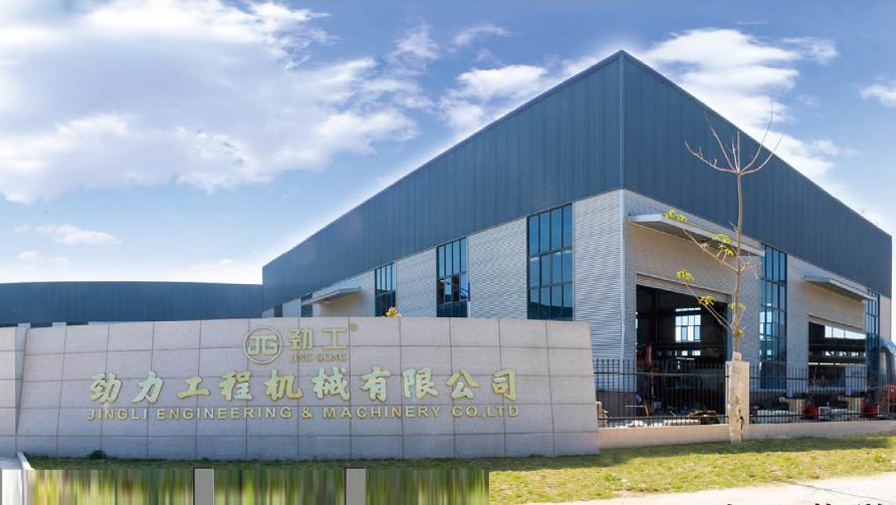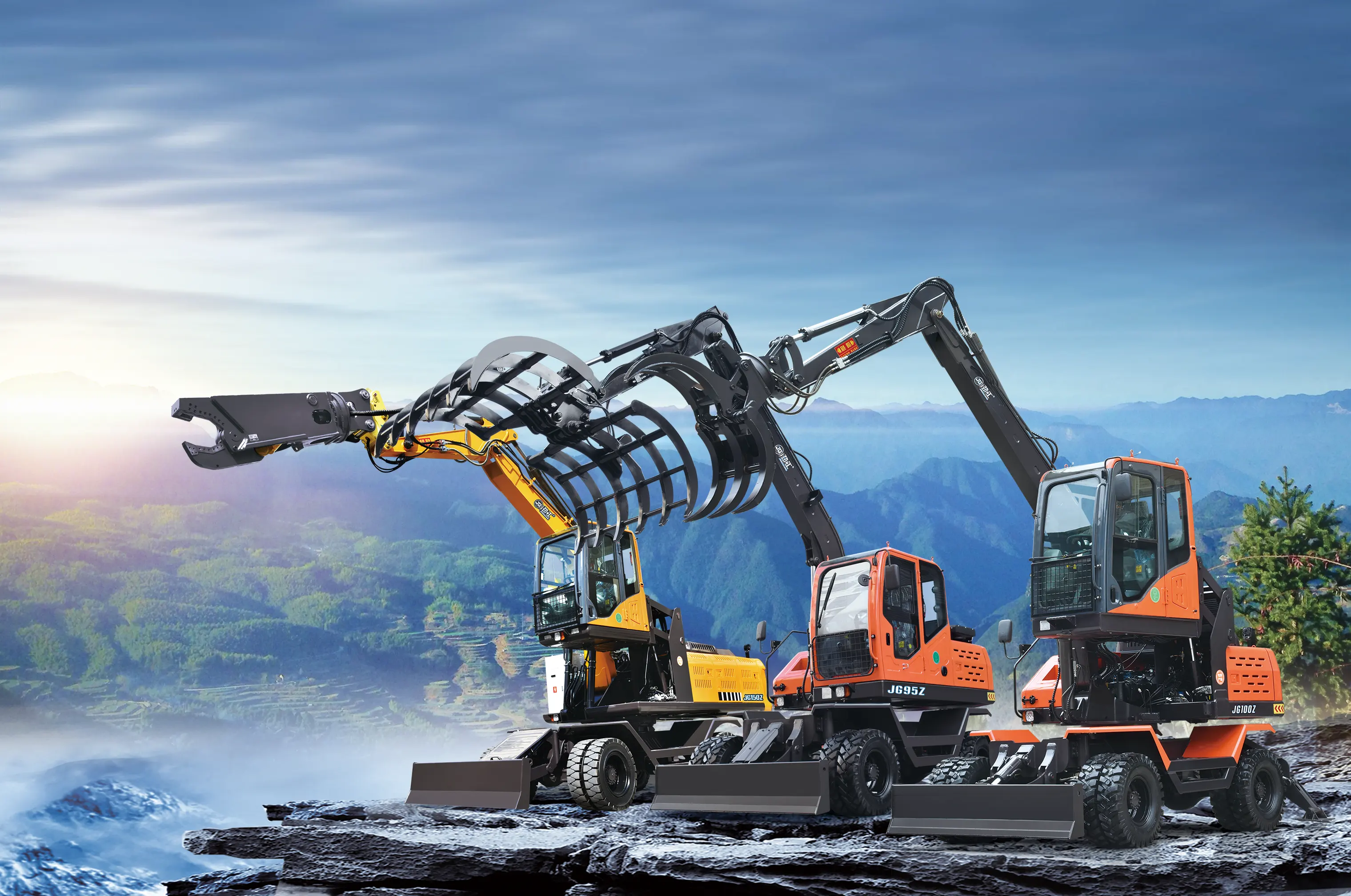
Online Inquiry
Evaluating the Lifespan of Hydraulic Crawler Excavator Factories: A Comprehensive Guide
TIME:2025-08-05 11:20
Evaluating the Lifespan of Hydraulic Crawler Excavator Factories
Table of Contents
- Understanding Hydraulic Crawler Excavators
- Importance of Lifespan Evaluation
- Factors Affecting Lifespan of Hydraulic Crawler Excavators
- Technological Advancements and Their Impact
- Lifecycle Management Strategies for Excavator Factories
- Case Studies of Notable Excavator Factories
- Future Trends in Excavator Manufacturing
- FAQs
Understanding Hydraulic Crawler Excavators
Hydraulic crawler excavators are indispensable in the construction and engineering industries, known for their versatility and strength. These machines are equipped with hydraulic systems that enhance their efficiency and capability to perform various tasks, from digging trenches to lifting heavy loads. Understanding their mechanics and operation is essential for evaluating the lifespan of their manufacturing processes.
Importance of Lifespan Evaluation
Evaluating the lifespan of hydraulic crawler excavator factories is crucial for several reasons. **Firstly**, it helps manufacturers identify potential weaknesses in their production processes that could affect the durability of the final product. **Secondly**, a comprehensive lifespan evaluation can lead to better design choices, improved safety standards, and increased customer satisfaction. Ultimately, this analysis can translate to cost savings and competitive advantages in the market.
Factors Affecting Lifespan of Hydraulic Crawler Excavators
Multiple factors influence the lifespan of hydraulic crawler excavators, which can be categorized into three main areas: quality of manufacture, operating conditions, and maintenance practices.
Quality of Manufacture
The quality of materials and components used in the manufacturing of hydraulic crawler excavators significantly impacts their longevity. Factories must prioritize rigorous quality control measures to ensure that every part meets industry standards. The selection of high-grade steel, hydraulic components, and electronic systems can dramatically enhance the durability of the machinery.
Operating Conditions
Operating environments play a crucial role in the lifespan of hydraulic crawler excavators. Machines that work in harsh conditions—such as extreme temperatures, abrasive materials, or high humidity—are more prone to wear and tear. Understanding these conditions helps manufacturers design machines that can withstand challenging environments while maintaining performance.
Maintenance Practices
Regular maintenance is vital for extending the lifespan of hydraulic crawler excavators. Scheduled inspections, timely repairs, and proper lubrication of hydraulic systems can prevent minor issues from escalating into significant failures. Factories must provide comprehensive guidelines for maintenance, emphasizing the importance of proactive care.
Technological Advancements and Their Impact
Technological advancements have revolutionized the manufacturing of hydraulic crawler excavators. Innovations such as telematics, automation, and advanced hydraulic systems have improved the efficiency and durability of these machines. Factories that integrate cutting-edge technologies into their production processes can enhance the lifespan of their excavators, catering to the evolving demands of the industry.
Lifecycle Management Strategies for Excavator Factories
Effective lifecycle management strategies are essential for optimizing the lifespan of hydraulic crawler excavators. Factories should implement strategies that encompass the entire lifecycle of the machine, from design and manufacturing to maintenance and eventual decommissioning. Utilizing data analytics and predictive maintenance can lead to better decision-making and resource allocation, ultimately extending the lifespan of excavators.
Case Studies of Notable Excavator Factories
Examining successful hydraulic crawler excavator factories can provide valuable insights into effective practices. For instance, companies that have embraced sustainable manufacturing processes and invested in research and development have often seen improvements in the durability of their machines. Analyzing these cases can guide other manufacturers in implementing similar strategies.
Future Trends in Excavator Manufacturing
The future of hydraulic crawler excavator manufacturing is poised for exciting developments. As industries push towards sustainability and efficiency, manufacturers are likely to focus on electric and hybrid excavators, reducing environmental impact while maintaining performance. Additionally, advancements in robotics and AI will streamline manufacturing processes, enhancing precision and productivity.
FAQs
1. What is the average lifespan of a hydraulic crawler excavator?
The average lifespan of a hydraulic crawler excavator typically ranges from 10,000 to 12,000 hours of operation, depending on usage and maintenance practices.
2. How can companies extend the lifespan of their hydraulic excavators?
Companies can extend the lifespan of their hydraulic excavators by implementing regular maintenance schedules, using high-quality parts, and training operators on proper usage techniques.
3. What role does technology play in the lifespan of excavator factories?
Technology enhances the lifespan of excavator factories by improving design, manufacturing processes, and predictive maintenance practices, leading to higher-quality products.
4. Are there specific materials that improve the longevity of hydraulic excavators?
Yes, using high-grade steel and durable hydraulic components can significantly improve the longevity of hydraulic excavators.
5. What impact do operating conditions have on excavator lifespan?
Operating conditions, such as temperature extremes and abrasive environments, can accelerate wear and tear on excavators, reducing their overall lifespan.
Conclusion
In conclusion, evaluating the lifespan of hydraulic crawler excavator factories involves a thorough analysis of multiple interrelated factors, including the quality of manufacture, operating conditions, and maintenance practices. By adopting innovative technologies and effective lifecycle management strategies, manufacturers can improve the durability of their machines while meeting the increasing demands of the construction and engineering industries. As we look to the future, embracing advancements in technology and sustainable practices will be crucial for the continued success of hydraulic crawler excavator manufacturing.










